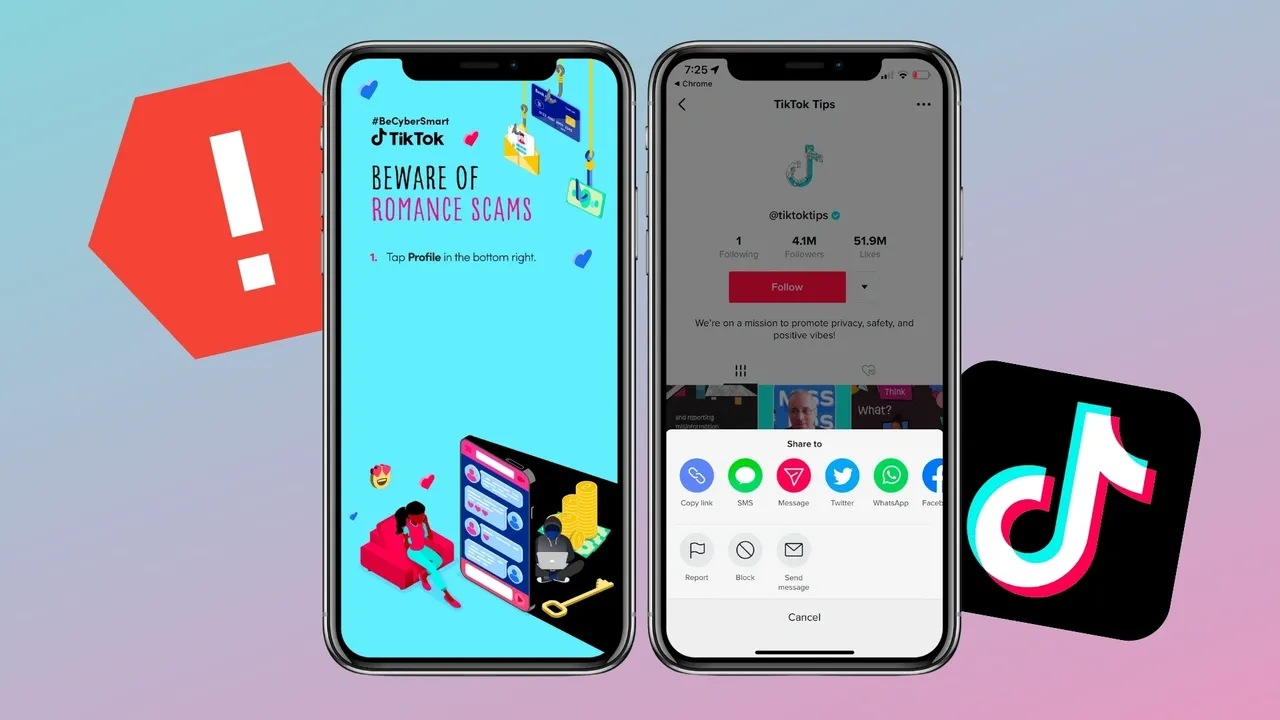Valentine’s Day just passed, even so, the celebration of the event may linger for the next couple of days, which is where this new TikTok advisory might come in handy. Though supposedly a day for romance and intimacy, Valentine’s, as with most other holidays, is still prone to various scams and fraudulent activities. Those who frequent social and dating apps are typically more vulnerable.
TikTok explains:
“In 2020, losses from romance scams reported to the Federal Trade Commission (FTC) topped $304 million, climbing 50% from 2019. As a continuation of our efforts to encourage people to #BeCyberSmart alongside fraud awareness champions – including the National Cyber Security Alliance (NCSA), Identity Theft Resource Center (ITRC), About-Fraud, The Knoble, Wiser – Free Security Training, and Frank on Fraud – we admire TikTok creators for helping to shine a spotlight on the cruel intentions of so-called suitors that have long-plagued dating apps or other online forums.”
Guard Your Heart
Netflix recently released a new documentary called the ‘Tinder Swindler’, which screens the story of scammer Simon Leviev and his complex schemes to steal money from various women. This release has also sparked active discussions around romance scams. Check it out on Netflix if you want an interesting and engaging reminder of the risks of social dating. (Note: Leviev is also reportedly active on TikTok)
TikTok shared a couple of tips to increase personal security on the platform:
- Take it slowly – TikTok says that swindlers are quick to profess their affection and strategically move towards taking conversations off apps. “A best practice is to vet your new heartthrob by asking questions, and pay attention to inconsistencies that may reveal your crush as an impostor”.
- Keep Your Funds to Yourself – Separate your financials from your feelings, because sometimes the latter can overpower the former. TikTok says that unless you’ve met in person, don’t exchange money in any way, meaning that gift cars and apps like Venmo are out of the question.
- Don’t Play Games – Conduct reverse image searches on Google Images on someone’s profile picture. “If results show the same photo on another site but with a different name attached, a scammer may have stolen it”. Also do searches of lines of suspicious emails, texts, and messages.
Finally, TikTok advises that as soon as something feels “Off”, users should cut connections immediately.
“Fraud, scams, and bad business practices can also be reported to the Federal Trade Commission, FBI Internet Crime Complaint Center (IC3), and IRS Taxpayer Guide to Identity Theft in the US, along with Action Fraud in the UK. If you encounter suspicious activity in-app, report it to TikTok’s Safety Center, and follow @TikTokTips for more ways to #BeCyberSmart.”
The Wrap
All scams are terrible and do a certain amount of harm and those that target vulnerable people are the worst kind. Single people who are actively going on dating apps to look for suitable partners are often in a very vulnerable state, which is why being reminded to stay vigilant despite the lingering desire does have its merits. To close, take a look at this new one-sheeter by TikTok about its various privacy and protection tools.
Subscribe to our ‘Bottoms Up!’ Newsletter. Get the latest social media blogs about news, updates, trends, and effective social media strategies to take your business to the highest level from Tristan Ahumada and Jeff Pfitzer.
Sources

